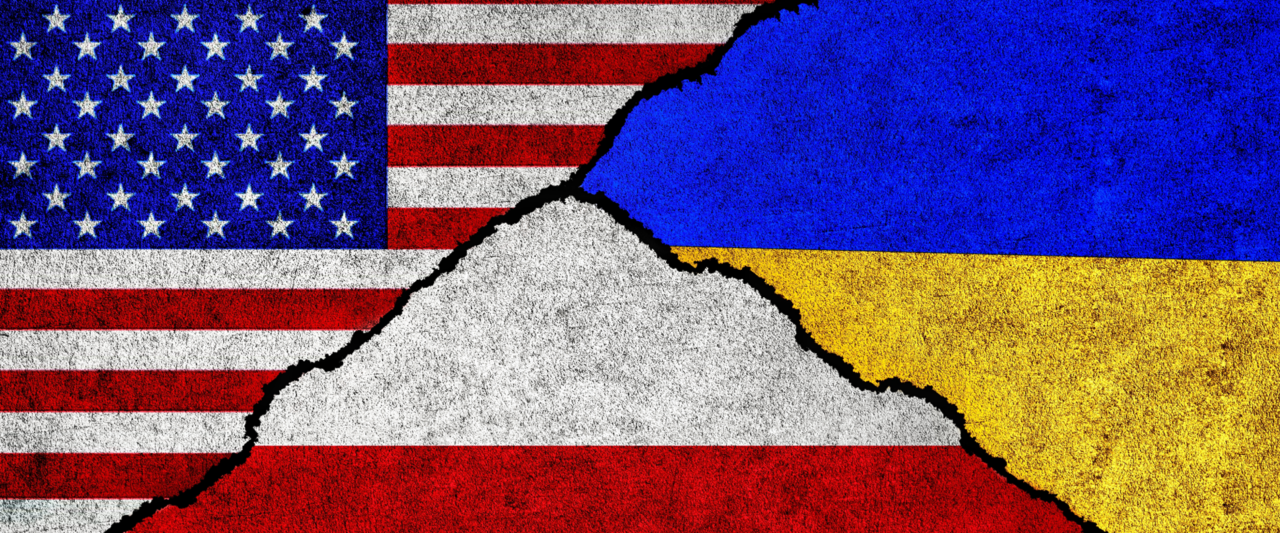NYSBA’s Ukraine Task Force Leads to New National Ukrainian Immigration Task Force
8.1.2022
When Russia invaded Ukraine, the International Section did what it does best: It put together the best legal minds in international law and got straight to work.
Working through the New York State Bar Association’s Ukraine chapter and the Ukrainian Bar Association, the International Section assisted the country as it struggled with Europe’s largest refugee crisis since World War II and gathered evidence to prove that it was the victim of war crimes.
Their collaborative efforts and thought leadership have now led to a larger and robust Ukraine Immigration Task Force devoted to helping Ukrainians fleeing war find refuge in the United States. The volunteer legal coalition now numbers more than 100 attorneys and policy professionals as well as nonprofit and advocacy organizations.
The goals include expediting employment authorization documents to help Ukrainian refugees find work quickly, providing educational resources in a multitude of languages on how women and children can safely find shelter and creating permanent pathways for residence.
How it started
Under the leadership of Edward Lenci, immediate past chair of the NYSBA’s International Section and co-chair of the Ukraine Task Force, the section had been working since December to offer its support.
Lenci and Serhiy Hoshovsky, a Ukrainian lawyer practicing in New York who is chair of the International Section’s Committee on Eastern Europe, worked closely to make this a reality.
As tensions intensified between Russia and Ukraine, the section established a Ukraine chapter and partnered with the Ukrainian Bar Association, eventually signing a Memorandum of Understanding pledging to work together. On Feb. 15, the International Section launched the Ukraine Task Force to help collect evidence of war crimes, assist refugees, provide humanitarian relief and aid displaced lawyers.
Task force member Joy Ziegeweid, a senior visiting fellow at Immigrant ARC, coordinated legal services with other immigration attorneys around the country, which resulted in a national spinoff of the Ukraine Immigration Task Force operating under the leadership of Anne L. Smith, co-chair and policy director.
Watching the destruction of her hometown, the Kyiv-born Smith immediately sought to find and contact relatives, and try to help them evacuate.
“Our relief from knowing they had found temporary refuge in Europe was soon replaced with the sobering realization that they may not be able to reunite with their loved ones in the United States anytime soon,” said Smith. “Attorneys, such as myself, felt a lot of frustration at the painfully slow visa processing, bureaucratic inconsistencies that approved some applicants while rejecting others who met the qualifications, and the overall lack of efficient pathways for Ukrainians fleeing war.”
Under Ziegeweid’s leadership, NYSBA’s UTF immigration and refugee team provided up-to-date information and resources to aid both Ukrainian nationals seeking protection and the attorneys that serve them inside the U.S. and abroad. Members recruited volunteers, dispelled misinformation, and published up-to-date information about relief available in Europe and the U.S. For immigration lawyers, the team provided up-to-date information about best practices, consulates, NGO guidance and relief and special legal considerations for Ukrainians.
While Europe and Canada quickly responded and welcomed refugees, the U.S. domestic response was slower. Issuance of B2 visitor visas to Ukrainians at consulates in Europe was marked by inconsistency and confusion. The U.S. government designated Ukraine for Temporary Protected Status in early March but did not begin accepting applications until April 19.
Due to growing interest and a new focus, the attorneys realized that a standalone Ukraine Immigration Task Force was essential to meet the challenges of the moment, particularly engaging in the multi-pronged policy advocacy necessary to ensure that Ukrainians could safely and quickly find refuge and stability in the United States.
Ziegeweid, the co-chair, said, “While it has been frustrating to witness how the dysfunction of the U.S. immigration system has prevented Ukrainians from quickly seeking safety and stability in the United States, it has been heartening to work with this ever-growing group of committed attorneys and advocates for refugees.”
“When I learned that the Ukraine Immigration Task Force had grown out of the NYSBA’s Ukraine Task Force, I was delighted and proud that our task force was really making a difference, and I think it showed on my face,” Lenci said. “I was wowed, blown away, when I learned for the first time at the task force meeting on July 14th that our immigration team, under Joy’s leadership, had blossomed into a nationwide organization.”
What it does
The Ukraine Immigration Task Force established contact early on with Ukrainian communities to centralize efforts to provide guidance and educational resources in Ukraine and Russia.
“Immigration law is a highly complex field, and it can take years to obtain certain legal statuses — but only one small misstep to endanger one’s chances at remaining here lawfully,” said Smith. “There was — and still is – a lot of misinformation ranging from well-meaning but misguided advice to scams attempting to profit off people’s desperation.”
She said that, “unsurprisingly,” attorneys — as well as nonprofit and volunteer organizations — were flooded with pleas to help families at the U.S. border and in precarious living situations worldwide, as well as to assist individuals with scarce funds and English skills to file various forms.
“We felt it was paramount not only to reach out to Ukrainians about the risks of abuse, trafficking, and exploitation, but also to promptly communicate the rapidly evolving regulatory changes to Ukrainians, their families, and supporters so they didn’t end up making costly mistakes as they tried to resettle here.”
One of UITF’s first projects was drafting a resource document informing Ukrainians fleeing war about various entry options into the United States, which UITF provided in English, Ukrainian and Russian. This document grew into 74-pages of guidance that covers a broad range of immigration topics, including Refugee Admission and Asylum Protection, Humanitarian Parole and the “Uniting for Ukraine” Program, Seeking Entry at the U.S. Border, Temporary Protected Status (TPS), Non-Immigrant Visas, Immigrant Visas, and Permanent Residence in the U.S.
UITF also provides educational materials on such topics as filing for TPS, applying as a sponsor for Uniting for Ukraine, safety tips for women and children entering the United States, ways to avoid detention and separation of families at the border, rights and protections for Ukrainians admitted through the Uniting for Ukraine program, and tips for Ukrainian parolees applying for select federal benefits.
Moreover, UITF helps shape immigration policy by communicating directly with the Department of Homeland Security and U.S. Citizenship and Immigration Services through correspondence with key officials. According to the task force, some of the concerns UITF has expressed about obstacles to entry, technical malfunctions, and lack of clarity on certain processes have resulted in revisions and new guidance for certain procedures.
Overwhelmingly, the issue UITF has heard over and over from virtually all sources with which it interacts is the lack of access to lawful employment by recent arrivals. This issue puts countless vulnerable individuals and families in communities across America at risk for homelessness, exploitation, victimization, domestic abuse, and even human trafficking.
UITF’s current top priority is expediting Employment Authorization Documents for the 25,000 Ukrainians who were previously admitted at the U.S. border and potentially hundreds of thousands who are arriving this year through the Uniting for Ukraine program.
They — along with tens of thousands of Afghans and over a million others — face a processing delay of eight to 13 months due to an unprecedented backlog of work permit applications. Bloomberg Law reported in May that USCIS had more than 1.5 million pending applications for Employment Authorization Documents, according to data released for the first quarter of fiscal year 2022. That is a fraction of the 5.2 million total applications in the USCIS processing queue as of June 2022, a figure released by the Office of the Citizenship and Immigration Services Ombudsman in her annual report to Congress.
The UITF has proposed a temporary solution that would help not only Ukrainians, but also Afghans, Cubans, Haitians and individuals from other countries admitted on humanitarian parole. Rather than calling for Ukrainians to bypass the agency’s (preferred) standard application process, UITF’s proposal would function within the current regulatory framework by asking USCIS to adjust its procedures within the existing application process to temporarily grant conditional employment authorization to Ukrainians, Afghans, and others granted humanitarian parole.
In response to UITF’s advocacy and efforts by some of its partners such as Welcome.US, USCIS announced on July 28 that Ukrainians, Afghans, Cubans, Haitians, and other “public interest parolees” eligible to seek employment authorization under category (c)(11) parolees may now file Form I-765 Application for Employment Authorization Document online. USCIS estimates that processing time for such applicants will be reduced to a few months and could be completed in as little as six weeks in some cases. Humanitarian parolees who need to file a paper application, including those who apply for a fee waiver by mail, are also expected to benefit from reduced processing times due to automated improvements that aim to streamline the application process.
UITF’s next major advocacy project will focus on creating pathways for permanent residence for Ukrainians who lost everything, including family members who are unable to return to the place they once called home.
To learn more about the Ukraine Immigration Task Force and to get involved, visit ukrainetaskforce.org.






